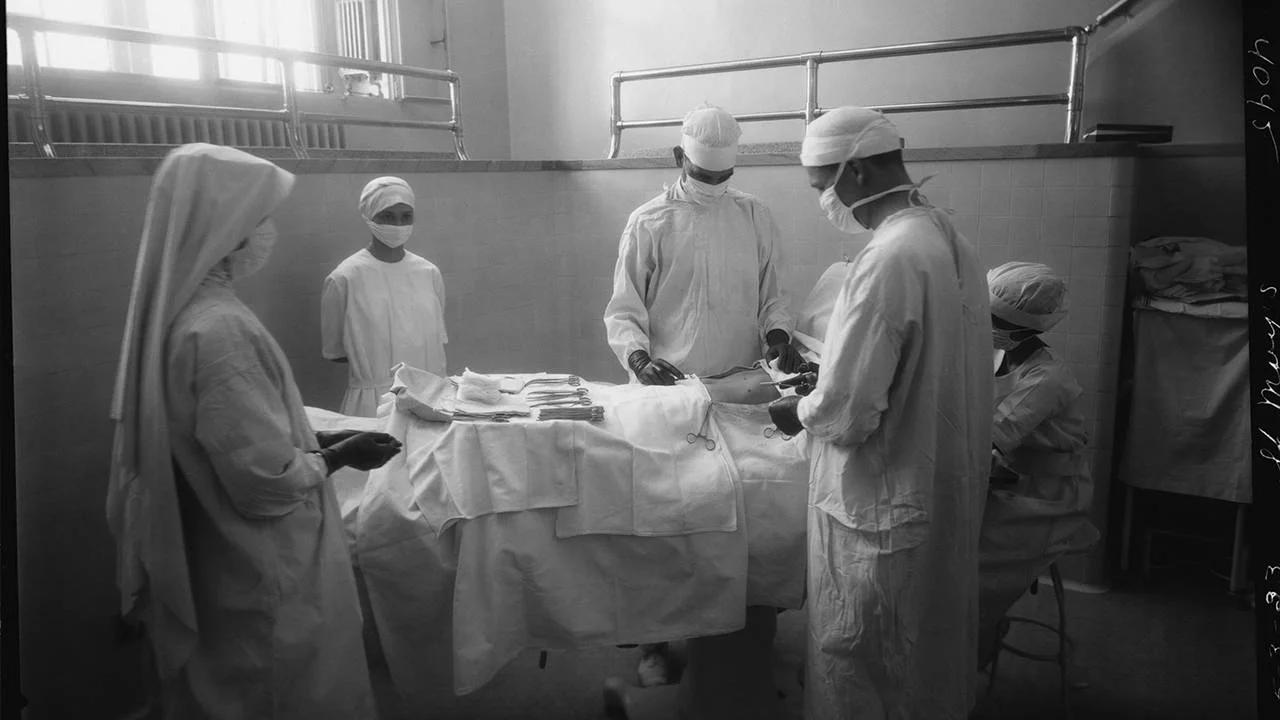The mayor and the music man
Author’s note: Historic preservation in Rochester is an issue I’ve watched first-hand ever since I can remember. As a professional writer and journalist in the city, I have avoided writing on the subject, since it’s one of my father’s principal passions. I have broken that policy for this article, as the lives of Reiter and Friedell are far too interesting not to share.
The Travelers Hotel, 426 2nd Street Southwest, nestled between Rochester Towers and the Baldwin Building, is an easy building to miss. The structure is actually a combination of two buildings, joined at some point in the 1980s. Its overlook-able nature belies the colorful history of the two men who first built on the site: Julius J. Reiter, a (non-consecutive) five-term mayor of Rochester and founding member of the Minnesota Democratic-Farmer-Labor Party, and William H. “Billy” Friedell, a one-eyed ex-circus musician and hotelier.
Mayor Reiter on the cover of the now-defunct Olmsted County Democrat
One-hundred-twenty years ago, in 1899, Julius J. Reiter was elected to his first office in Rochester — second ward alderman (the seat held by Michael Wojcik today). He went on to be a five-term mayor and when he died, his body was displayed in city hall for a day. His tenure included mayorships during the First World War and the Great Depression. He hired the city’s first female police officer, Minnie Bowron, and pioneered work in municipal ownership of public utilities. He was a founding member of the DFL — one of the men present at the fateful 1918 meeting in the Merchants Hotel in St. Paul.
When he died, Mayor Paul Grassley said, “His untiring efforts and service were so distinguished and outstanding, and are so well known, that the fullest praise I could give him would add but little to our memories of him.”
He built The Reiter Motel Apartments in 1920, on the side of his home. It was advertised to visitors to the Mayo Clinic as a “home away from home.”
In 1925, The Beverly opened next door. It was designed by William “Billy” Friedell, a one-eyed ex-circus musician turned Rochester real-estate tycoon. He was also an on-again, off-again political ally of Reiter who had moved to Rochester after being sent for treatment at Mayo by the Ringling Brothers. A 100-year-old harp was his only means of making a living upon arrival.
Post-Bulletin clipping from 1940
“I played that harp on street corners and passed the hat for about three weeks after coming to Rochester,” said Friedell in a 1940 interview.
He liked Rochester so much that he decided to stay after receiving a fake eye from Mayo Clinic, and he became a mainstay in the city’s dance scene. In addition to Rochester dance bands, he played music aboard Missouri and Mississippi River steamboats, and for a few winters in Deadwood, South Dakota. With the money he earned from music, Friedell bought a hotel near the Mayo Clinic. It was soon purchased by the Kahler Corporation. With the sale proceeds, he bought a second hotel, which he then flipped for more money. As a hotelier, Friedell helped inspire the Broadway hit Abie’s Irish Rose and assisted with funeral planning for Charles Lindbergh’s father.
The Beverly was an apartment house for single women living in Rochester. It sat mere feet away from the house of his occasional political ally, Reiter.
Reiter advertised having “the only Standard Kitchenette Apartment” in Rochester.
In March of 1934, the two men both attended the Minnesota Farmer-Labor convention. After an address by Governor Floyd B. Olson, Friedell, who was a delegate, made a comment to Reiter, who was only an alternate. Reiter, reportedly already angry over a political development in Rochester, made a “strong remark” to Friedell, who punched Reiter. The mayor retaliated and knocked out Friedell.
After the convention the two men returned to Rochester, where they lived next door to one another.
The fate of the Travelers Hotel is up for a vote at Tuesday’s meeting of the Historic Preservation Commission. Information in this article was gleaned from materials appearing in the meeting’s packet.
Update 4.23.19: The Heritage Preservation Commission voted 4-3 against adding the Travelers Hotel to the city’s Potential Landmark list, clearing the way for the building’s owner, Mayo Clinic, to eventually demolish the structure.
https://www.kimt.com/content/news/travelershotel-508988511.html
Bryan Lund is a Rochester journalist covering politics and culture for the Med City Beat. Follow him on Twitter.











